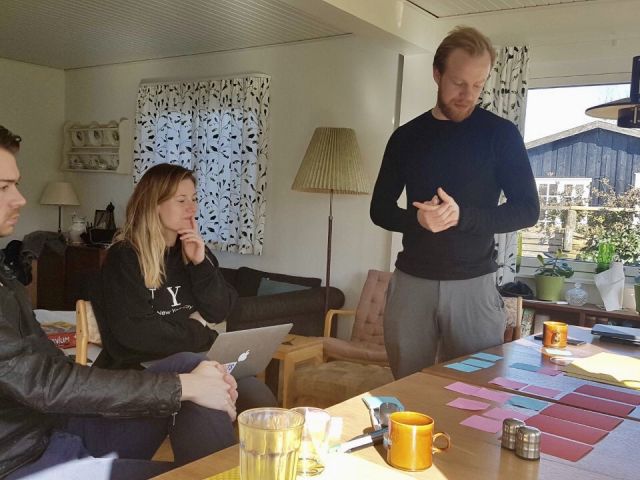Coronavirus crisis: Now students can take out extra SU loans

No need for extra chairs at the canteen. (Photo: Mette Koors)
The President of CBS Students, Sarah Diemar, is pleased that student needs are also on the agenda in these special times. However, she points out that the students will feel the effect long after the crisis has passed, as they will have additional debt.
In the past couple of days, the Danish government has joined forces with the parliament to launch several initiatives to help Danish businesses manage the effects of the current coronavirus outbreak. And now students in Denmark will also receive help.
The parliament has agreed to allow students to apply for two extra SU loans a month on top of their SU. The extra loans, worth about DKK 3,000 each, can provide the students with DKK 6,388 extra besides their SU and regular SU loans. In total, students can therefore apply for loans worth DKK 9,582 in March and April. The politicians are also ready to extend the scheme if the current situation continues.
UPDATE: The ministry has just agreed to extend the scheme counting May and June.
“The Red-Green Alliance (Enhedslisten) is happy to show students that we understand they can’t pay rent solely with SU. When they no longer have a student job, there must be an alternative for them as well,” said Pernille Skipper, Lead Spokesperson of the party at the press conference.
Sarah Diemar, President of CBS Students, is pleased to see that the politicians have not forgotten the students, who are also affected by the current crisis.
“Some students would be forced out of their homes if this initiative had not been launched. Many students work in the service industry, which is hard hit by the crisis, so it’s natural that a lot of students are missing out on some of their income. I’m glad to see that the students have not been forgotten in these time,” she says, praising The National Union of Students (DSF), which has remained in close contact with politicians on the matter.
The new loan scheme is also available for international students. Information on the website SU.dk states that international students from the EU will retain their worker status during the period where official recommendations from Danish authorities to reduce the spread of coronavirus might implicate that they are unable to work.
But whereas the money for the business sector is being given with no loan scheme, the students will have to loan the extra money they may need.
“The students will feel the effect of the crisis long after their studies are over, as it will take them time to pay back the money,” says Sarah Diemar.
However, she understands the politicians’ priorities.
“We are in a time where solidarity is more important than ever and, of course, the parliament had to draw a line. In the end, it is a question of prioritization and right now we need to focus on saving the many businesses that are struggling immensely at the moment. However, the students’ perspective should be considered and in the end, they throw an extra bill on the youth,” she says.






































































































































Comments